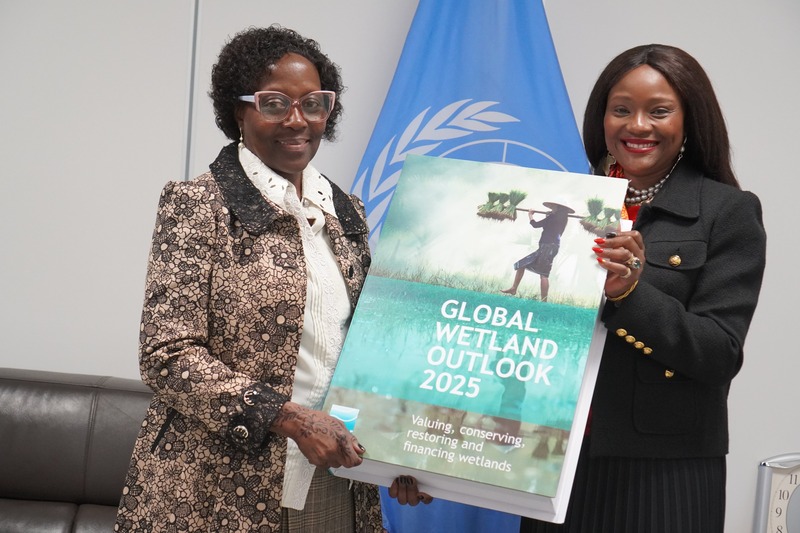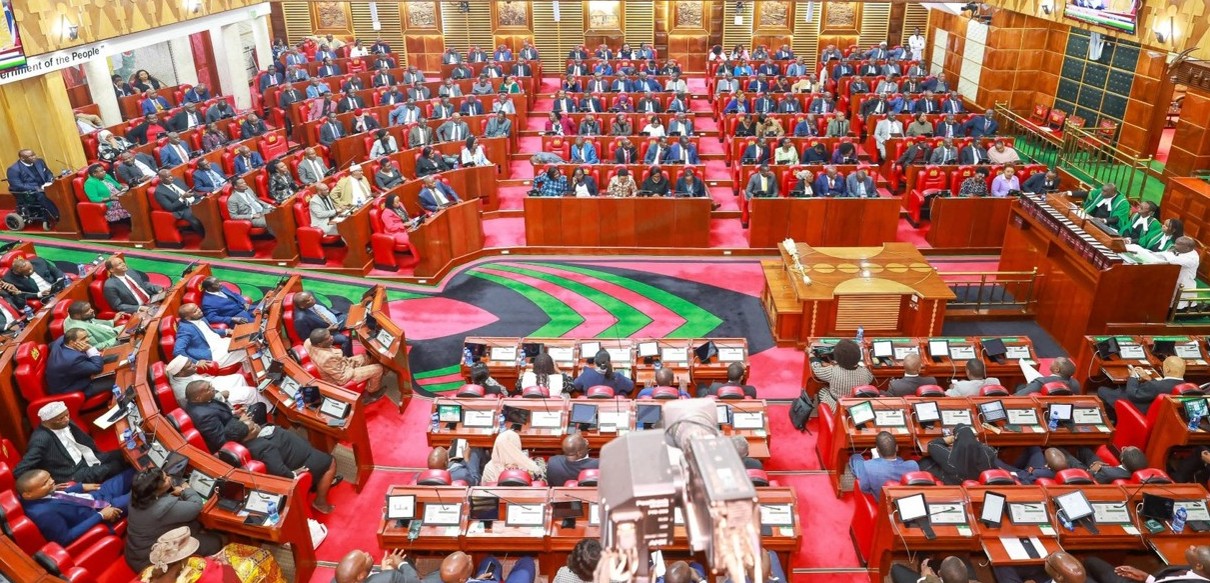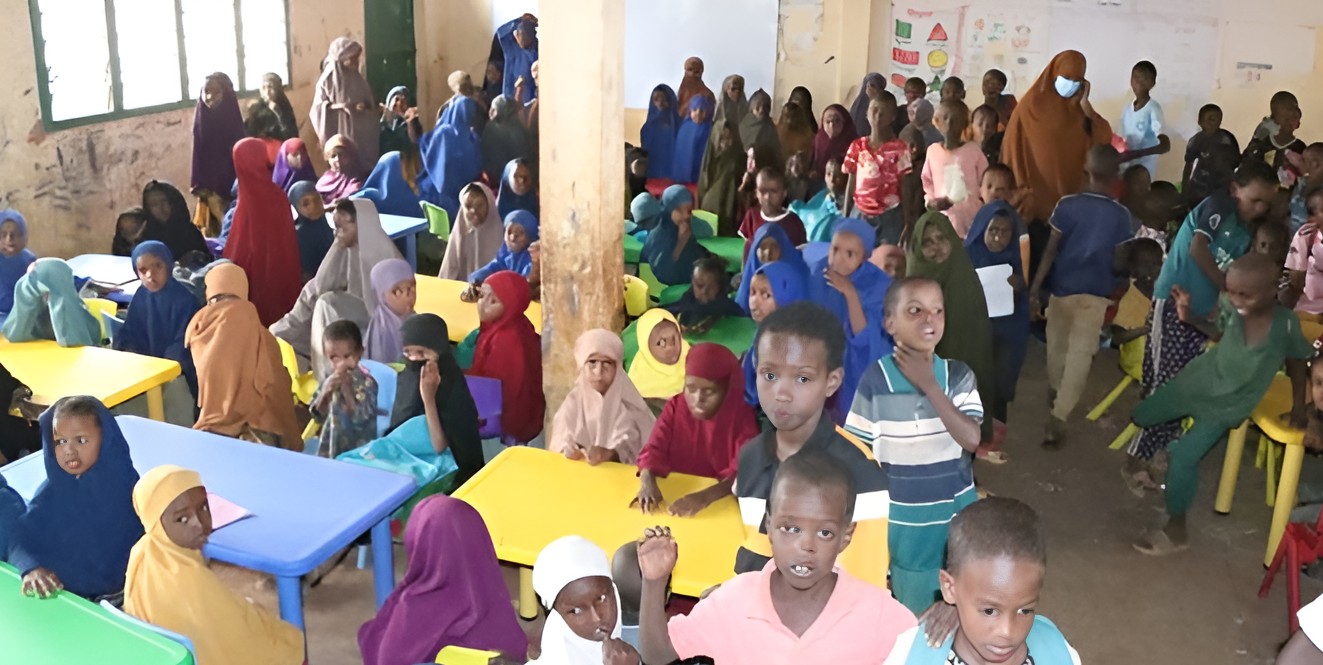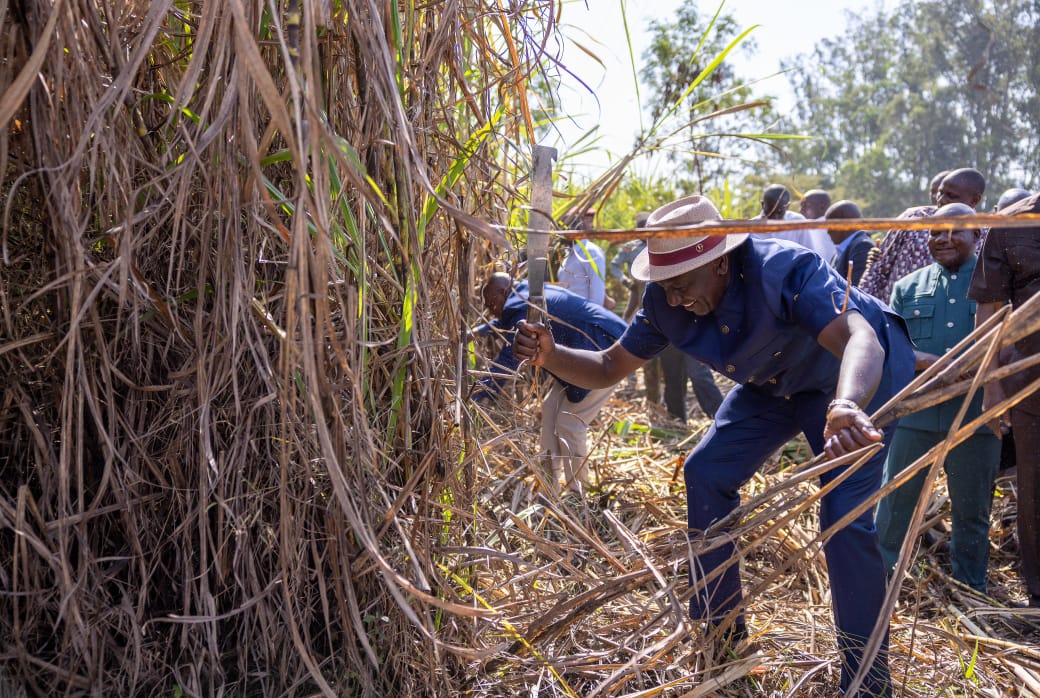World risks losing 20 per cent more wetlands by 2050, global report warns

The report provides clear solutions, backed by data and real-world examples, showing that wetland recovery is achievable and cost-effective if governments and institutions act swiftly.
Wetlands, vital to climate stability, food systems and global economies, are vanishing at a rate faster than any other ecosystem, and the world could lose 20 per cent more by 2050 unless urgent action is taken, a new global report has warned.
The Global Wetland Outlook 2025: Valuing, Conserving, Restoring and Financing Wetlands, released Tuesday, outlines how continued loss could result in a global economic blow of up to $39 trillion in lost benefits.
More To Read
- Over 600 air monitors deployed as Africa’s pollution fight gains ground
- Nairobi’s air pollution fuelling surge in children’s lung disease, experts warn
- From fish to forests: Women in Kenya’s Coast restore mangroves to combat climate change
- Africans survived 10,000 years of climate change by adapting food systems – Study offers lessons for modern times
- Africa’s environment ministers convene in Nairobi over climate action
- NEMA arrests 17 traders in Makueni for environmental violations, including use of banned plastic bags
The report paints a stark picture: although wetlands cover just six per cent of the earth’s surface, they contribute more than 7.5 per cent of the global GDP.
These ecosystems provide crucial services, including clean water, carbon storage, food production, and flood protection, while also sustaining millions of livelihoods through tourism, aquaculture, and agriculture.
“Wetlands bankroll the planet, yet we’re still investing more in their destruction than recovery,” said Dr Musonda Mumba, secretary general of the Convention on Wetlands. “Restoring them could unlock $10 trillion in benefits, but time is running out.”
This is the third and most detailed edition of the Outlook, following the 2018 and 2021 reports. It comes ahead of the 15th meeting of the Conference of the Contracting Parties (COP15), set for July 23 to 31 in Victoria Falls, Zimbabwe, where global leaders will discuss urgent strategies to save these ecosystems.
Currently, wetlands are disappearing at a rate of 0.52 per cent annually. Since 1970, 22 per cent of the world’s wetlands have been lost, an area equivalent to more than half a billion football fields.
Of those remaining, about a quarter are in poor health, with Africa, Latin America and the Caribbean experiencing the most severe decline.
“Wetlands are not a side issue, they’re fundamental to the global water cycle and essential to billions of lives,” said Dr Hugh Robertson, chairperson of the Scientific and Technical Review Panel.
“We know what works. What’s needed now is bold, sustained investment.”
The report provides clear solutions, backed by data and real-world examples, showing that wetland recovery is achievable and cost-effective if governments and institutions act swiftly.
It warns that continued neglect will deepen the impacts of climate change and biodiversity loss, and hit the most vulnerable populations hardest.
Kenya’s wetlands, ranging from Lake Victoria’s shores to the coastal mangroves and Rift Valley lakes, occupy about three to six per cent of the land, depending on the season.
These are not only rich in biodiversity, but also serve as economic anchors through farming, fishing, clean water supply, and ecotourism. Several of them are recognised internationally as Ramsar sites, World Heritage areas, and national parks.
At least 12,300 wetlands have been mapped countrywide by the National Environment Management Authority (NEMA) in August 2024.
This followed President William Ruto's order in 2023 that wetlands and water towers across the country should be secured and gazetted.
On November 14, 2023, the Kenya Kwanza Government embarked on a journey to rehabilitate wetlands in the county after President Ruto declared all wetlands and water towers across the country would be secured and gazetted.
"We must change the face of our nation. We must have enough water, get rains in all seasons, have enough food production and leave behind a country for the next generation that is well conserved," he said during the National Tree Growing Day at Kiu Wetland in Makindu, Makueni County.
Ruto stated that 10,000 wetlands in Kenya must be protected from human activities such as settlement and the destruction of trees.
Top Stories Today










































